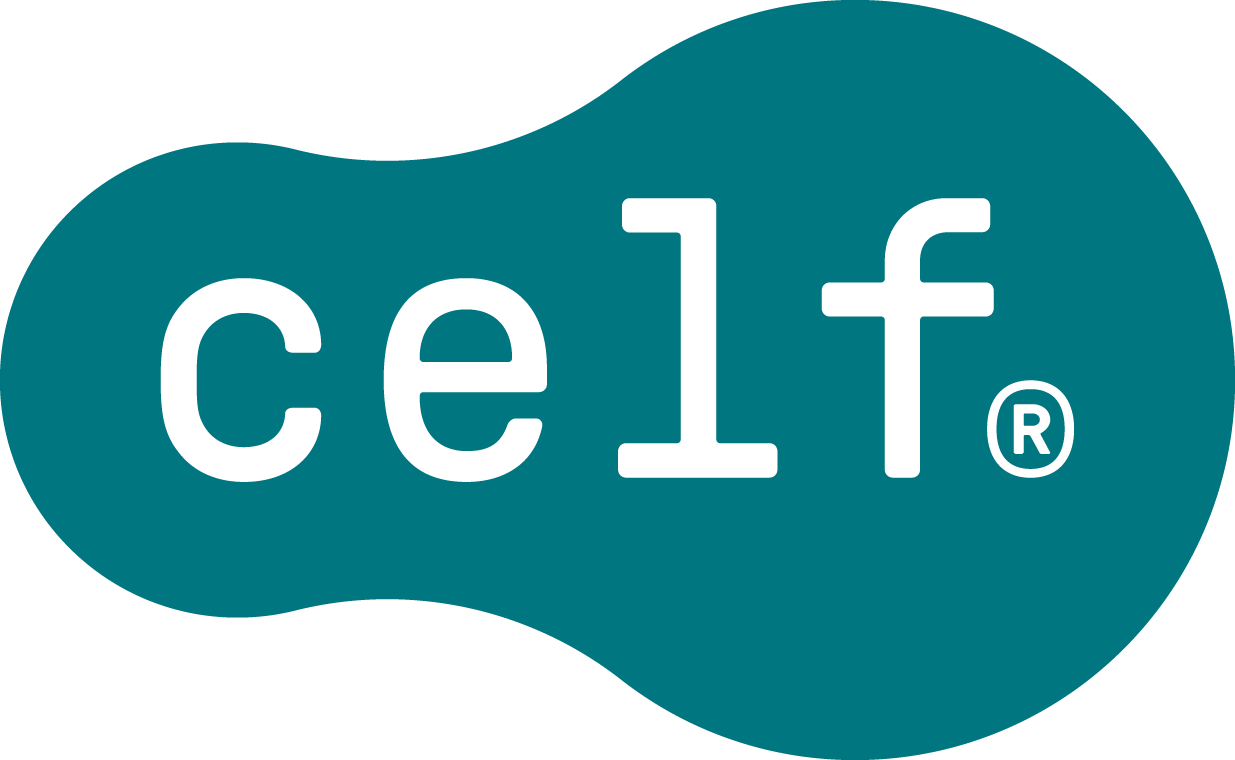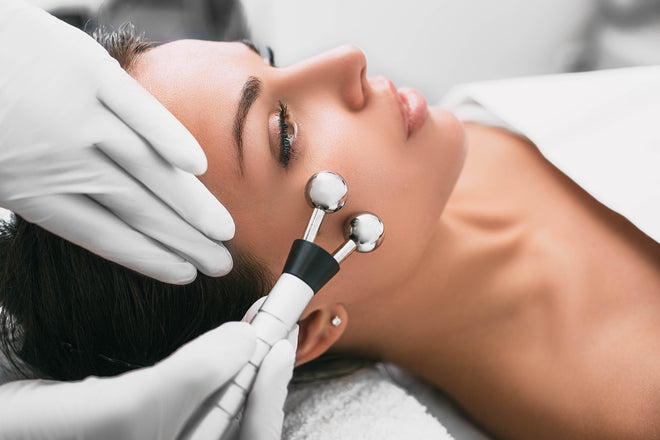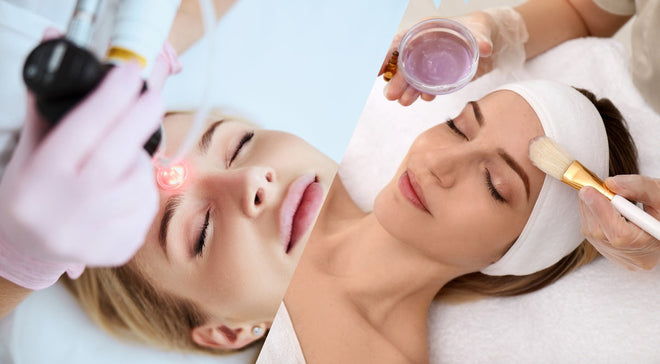Using Face Masks for Elasticity: Ingredients That Work
Table of Contents
Introduction
Skin elasticity is the very foundation of a youthful, radiant complexion. When elasticity diminishes, our skin loses its ability to bounce back—resulting in sagging, dullness, and fine lines. While this process is a natural part of ageing, the good news is that targeted ingredients in face masks can help restore firmness. By pairing these ingredients with advanced tools like CELF Microvibration Therapy, you can take control of your skincare journey and unlock science-backed solutions for firmer skin.
CTA: Harness the power of evidence-informed skincare tools like CELF to support firmer, more resilient-looking skin. Learn more here.
What Is Skin Elasticity, and Why Does It Matter?
Skin elasticity refers to your skin’s ability to snap back after being stretched or pulled. This resilience is primarily due to two proteins: collagen, which provides structure, and elastin, which allows flexibility. Over time, factors such as ageing, UV damage, dehydration, and pollution break down these proteins, leading to visible signs like sagging and wrinkles.
When elasticity declines, even the most hydrated skin can look tired. This is why elasticity is a cornerstone of youthful appearance—and why supporting elasticity should be a central focus in any routine designed to help skin look firmer and more refreshed.
CTA: Interested in non-invasive methods to stimulate collagen and restore skin firmness? Discover how CELF targets fibroblast cells to bring back youthful bounce.
How Face Masks Support Skin Elasticity
Face masks are more than just a self-care ritual—they are targeted delivery systems for active ingredients. Depending on their type—sheet masks, gel masks, clay masks, or overnight masks—they can:
-
Lock in hydration.
-
Deliver concentrated doses of actives.
-
Support temporary plumping and contribute to the appearance of improved elasticity over time.
The occlusive nature of masks enhances ingredient penetration, allowing actives like peptides and hyaluronic acid to work more effectively for your skin.
Pro Tip: Maximise your skincare ingredients effectiveness with CELF Microvibration Therapy. It enhances serum absorption, allowing key actives to penetrate deeper into the skin. Explore CELF tools.
Key Ingredients That Work for Skin Elasticity—Backed by Science
1. Peptides
Peptides are short chains of amino acids that are widely researched for their role in supporting skin’s natural processes. Some studies, like Borkow et al. (2018), suggest certain peptides help improve the appearance of skin firmness and smoothness.
-
In masks: Look for peptide-enriched sheets or gel masks.
2. Retinol (Vitamin A)
Retinol is known to encourage skin renewal and help improve the look of firmness and smoothness. Dermatologists often recommend it for elasticity, but caution about overuse due to sensitivity. [Source: Kong et al. (2015)]
-
In masks: opt for overnight retinol masks.
3. Hyaluronic Acid (HA)
According to the study of Mohammadi et al. (2025), HA hydrates and plumps skin, instantly improving elasticity. It works by attracting water molecules deep into the skin.
-
In masks: best delivered through sheet or hydrogel masks.
4. Niacinamide (Vitamin B3)
Niacinamide strengthens the skin barrier, reduces fine lines, and supports elasticity. [Source: Wollina & Abdel-Naser (2024)]
-
In masks: Lightweight water-based formulas are ideal.
5. Vitamin C
A powerful antioxidant, Vitamin C is an antioxidant that helps protect skin from free radical damage and supports a brighter, firmer-looking complexion. [Source: Boyera et al. (1998)]
-
In masks: Ideal in single-use sheet masks to prevent oxidation.
Pro Tip: Brighten and firm dull skin faster—use your favourite Vitamin C serum with CELF Microvibration Therapy after cleansing.
How to Incorporate Elasticity-Boosting Face Masks into Your Routine
Timing and consistency are key when it comes to masks:
-
Best time: Evenings, when skin repairs itself.
-
Frequency: 2–3 times per week, depending on your skin type.
-
Prep: Always start with clean skin.
For maximum benefits, use CELF Microvibration Therapy for one minute before applying your mask. This stimulates fibroblasts, increases circulation, and primes your skin for better absorption.
CTA: Maximise every mask with the power of CELF. Shop our microvibration tools.
Common Mistakes to Avoid with Elasticity-Focused Masks
-
Overuse: Using masks daily may irritate.
-
Mixing too many actives: Retinol and Vitamin C in one session can lead to sensitivity.
-
Skipping hydration: Always seal in mask benefits with a moisturiser.
-
Ignoring lifestyle: Elasticity relies on hydration, SPF, and supportive tools like CELF.
Callout: Tools like CELF do more than enhance product absorption—they help stimulate the skin’s surface, supporting a smoother, more radiant-looking appearance. Think of it as training your skin, naturally.
Real Results—What to Expect Over Time
-
Immediate: Many users notice hydration and temporary plumping.
-
2–4 weeks: Reduced fine lines, brighter tone.
-
8–12 weeks: With consistent use, some people report their skin looks firmer and more elastic.
CTA: Ready for firmer, more radiant skin? Commit to your skincare goals with CELF—shop now.
Professional Insight – What Dermatologists Say
Dermatologists often emphasise that consistency matters. Ingredients like peptides and vitamin C may be effective, and results may be supported by complementary techniques such as gentle massage or device-based skincare tools.
Comparison Table:
|
Method |
Benefits |
Limitations |
|
Collagen Creams |
Hydration, barrier support |
Limited collagen stimulation |
|
Elasticity Masks |
Targeted actives, quick boost |
Need consistency |
|
CELF Microvibration Therapy |
Stimulates fibroblasts, enhances absorption |
Works best as part of a regimen |
Build Your Firming Skincare Toolkit
Your elasticity-boosting routine should include:
-
✔️ Peptide, HA, and Niacinamide face masks
-
✔️ Daily SPF
-
✔️ Nightly retinol (if tolerated)
-
✔️ CELF Microvibration 2 minutes every evening after brushing your teeth
CTA: Build your elasticity-boosting ritual with CELF. Explore how this innovative tool strengthens your skincare.
Conclusion: Your Skin, Reawakened
Skin elasticity doesn’t have to fade with age. By choosing evidence-informed ingredients and pairing them with tools like CELF, you can support firmer-looking, more radiant skin. The future of youthful, elastic skin is already in your hands.
Final CTA: Discover CELF — The Future of Firm, Elastic Skin.
FAQs
1. Do firming masks really work?
Yes, firming masks can temporarily tighten the skin and improve elasticity. Masks with collagen, peptides, and hyaluronic acid help plump the skin and support its natural structure, giving a firmer and more youthful look.
2. What is the best homemade face mask for skin tightening?
A simple homemade mask using egg whites, honey, and lemon juice is popular for tightening skin. Egg whites help firm, honey hydrates, and lemon brightens. Regular use may improve skin texture naturally.
3. Can face masks really reduce wrinkles?
While face masks can’t eliminate wrinkles permanently, they help reduce the appearance of fine lines. Ingredients like retinol, vitamin C, and antioxidants boost collagen production and protect against premature aging.
4. What is the best firming face mask?
The best firming masks often contain collagen, peptides, hyaluronic acid, or natural botanicals like aloe vera and green tea. Korean sheet masks are especially effective for quick hydration and elasticity.
5. Using face masks for elasticity ingredients that work at home — what should I try?
At home, masks with natural ingredients like avocado, yogurt, and aloe vera work well for boosting elasticity. DIY options are cost-effective and safe when used consistently.
6. Which Korean face masks are best for skin elasticity?
Korean face masks with snail mucin, ginseng, and hyaluronic acid are highly recommended. These ingredients are known to deeply hydrate and support collagen production for youthful skin.




